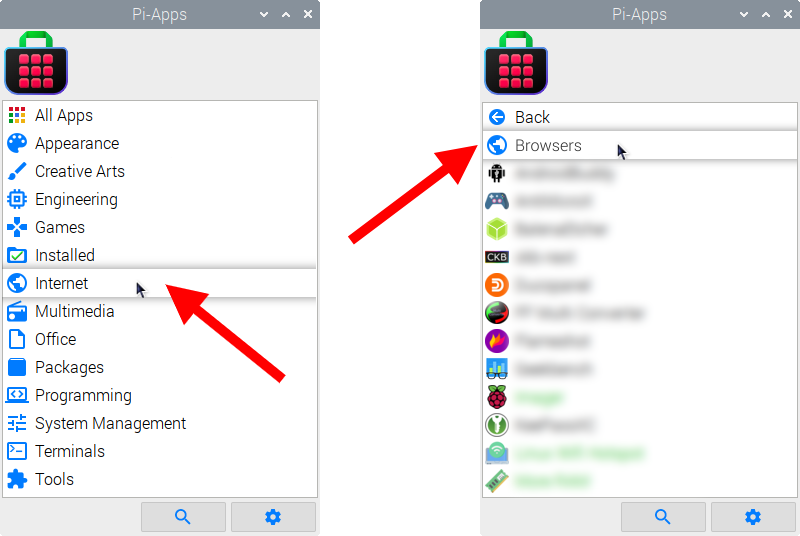Install  LibreWolf on
LibreWolf on  Raspberry Pi
Raspberry Pi
 LibreWolf
LibreWolf
A custom version of Firefox, focused on privacy, security and freedom.
Note: This is not the LibreWolf arm64 appimage. Installing from here will install LibreWolf to your system as a native app with best performance.
To run: Menu -> Internet -> LibreWolf
To run in a terminal: /opt/librewolf/librewolf
Fortunately, LibreWolf is very easy to install on your Raspberry Pi in just two steps.
- Install Pi-Apps - the best app installer for Raspberry Pi.
- Use Pi-Apps to install LibreWolf.
Compatibility
For the best chance of this working, we recommend using the latest version of Raspberry Pi OS, which is currently version Bookworm.
Raspberry Pi OS has 32-bit and 64-bit variants, both of which will run on most Raspberry Pi computers, including the Pi 3, Pi 4, and Pi5.
LibreWolf will only run on PiOS 64-bit. Pi-Apps will not let you install LibreWolf on PiOS 32-bit.
Install Pi-Apps
Pi-Apps is a free tool that makes it incredibly easy to install the most useful programs on your Raspberry Pi with just a few clicks.
Open a terminal and run this command to install Pi-Apps:
wget -qO- https://raw.githubusercontent.com/Botspot/pi-apps/master/install | bashFeel free to check out the Pi-Apps source code here: https://github.com/Botspot/pi-apps
Install LibreWolf
Now that you have Pi-Apps installed, it is time to install LibreWolf.
First launch Pi-Apps from your start menu:

Then click on the Internet category, which leads to the Browsers category.

Now scroll down to find LibreWolf in the list.
![]()
Just click Install and Pi-Apps will install LibreWolf for you!
Pi-Apps is a free and open source tool made by Botspot, theofficialgman, and other contributors. Find out more at https://pi-apps.io